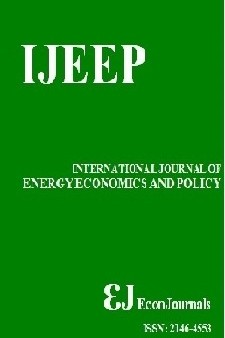Hedging Petroleum Futures with Multivariate GARCH Models
Hedging Petroleum Futures with Multivariate GARCH Models
The petroleum futures volatility, comovements and spillovers, multivariate GARCH models, optimal portfolio weights hedging ratios,
- Başlangıç: 2011
- Yayıncı: İlhan ÖZTÜRK
Environment Kuznets Curve for Carbon Emissions: A Cointegration Analysis for Bangladesh
Fazle RABBİ, Delwar AKBAR, SM Zobaidul Kabir
Energy Technology Innovation in Brazil
Nnaemeka Vincent Emodi, Zorig Bayaraa, Samson D. Yusuf
Marinês Taffarel, Wesley Vieira Da Silva, Ademir Clemente, Claudimar Pereira Da Veiga, Jansen Maia Del Corso
Energy Consumption and Foreign Direct Investment: A Panel Data Analysis for Portugal
Sholpan A. Smagulova, Amangeldi D. Omarov, Aybek B. Imashev
Coal Based Electricity Generation in South East Europe: A Case Study for Croatia
Alfredo Viskovic, Vladimir Franki
Can Nuclear Energy Stimulates Economic Growth? Evidence from Highly Industrialised Countries
Oil Shock Impacts on the Borderplex Regional Economy
Thomas M. FULLERTON, Teodulo SOTO
Oil-Growth Nexus in Oil Producing Countries: Macro Panel Evidence
José Alberto Fuinhas, António Cardoso Marques, Alcino Pinto Couto
